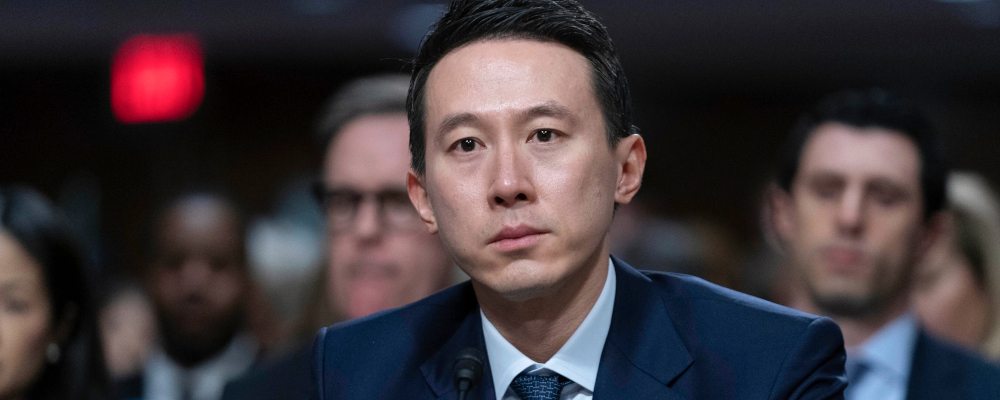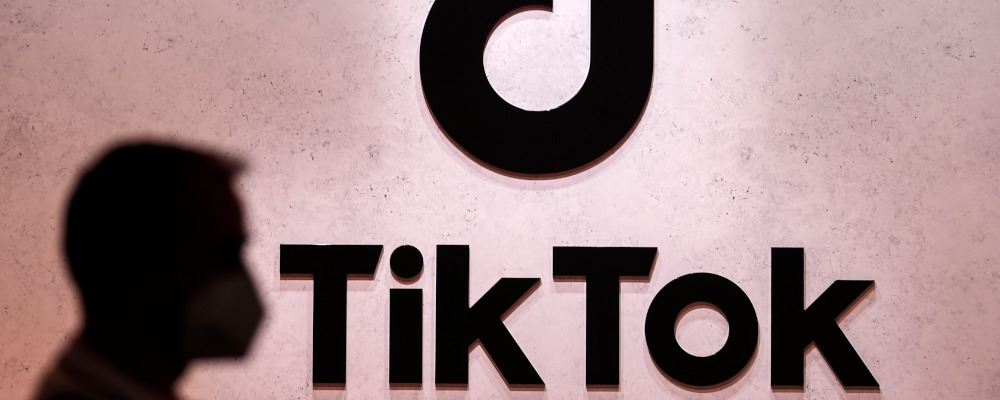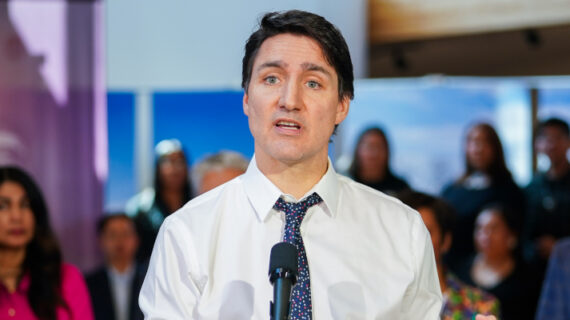Here’s a tip for web giants wanting to make sure public policymakers don’t shut them down because they fear they will abuse the power of their platform to exert political influence: don’t use the power of your platform to try to exert political influence.
Such is the lesson learned by TikTok (and, hopefully, others) over the past few days when it encouraged users to call U.S. congressional offices to express their alarm that the popular global social media platform could be evicted from the lucrative American market.
At stake is a bipartisan anti-TikTok bill that is fairly breezing through Congress. It would ban the purveyor of user-generated short-form videos from the U.S. if its parent company, Bytedance, doesn’t sell the video platform. Bytedance, which has global revenue of $110 billion (USD) is a Chinese tech company with firm ties to the ruling Chinese Communist Party (CCP). It has over 1.8 billion global users and 3.2 million active monthly users in Canada.

While it ranks as Canada’s third most popular and fourth most regularly used social media platform, 70 percent of its users are under 40 and the majority (60 percent) are women. That makes TikTok particularly appealing to advertisers and politicians trying to appeal to Millennials who now outnumber Baby Boomers.
Bytedance also owns Douyin, which is TikTok’s Chinese counterpart designed specifically to comply with that nation’s censorship restrictions. It has not gone unnoticed, however, that while the two systems have separate networks, they share the same software.
Given the CCP’s, ahem, curious nature concerning what’s up in the world of its rivals, the Americans want to eliminate any chance that the CCP has access to sensitive data about TikTokkers and could use the platform as a vehicle to spread disinformation and manipulate political outcomes.
TikTok is trying to fight back. But when it used its platform to encourage users to contact their representatives in Congress, the move backfired. Big time.
The BBC reported that the office of one of the co-sponsors of the bill, Florida Congressman Neal Dunn, took 900 calls “many of which were vulnerable school-aged children” with the end result being that “this effort by Bytedance validated the Congressman’s concerns.”
Given the extent to which Chinese political interference has been exposed in Canada in recent years, one might have expected the Justin Trudeau-led government to have spearheaded the battle against Bytedance.
But then again, given the government’s pattern of downplaying and footdragging on virtually all Les Affaires Chinoise, perhaps it’s not that surprising at all.
Whether it involves the ongoing presence of Chinese “police stations” in the nation’s major cities, the apparent use of spies within the National Microbiology Laboratory in Winnipeg, and an official commission of inquiry into foreign political interference—triggered by allegations China manipulated nomination battles and even election races in key ridings—the Trudeau government has had to be dragged kicking and screaming into action.
Its appointment of Justice Marie-Josee Hogue to head the commission of inquiry came only after the debacle of special rapporteur David Johnson’s perfunctory look into the matter. The revelations regarding the fired scientists at the bio lab in Winnipeg took close to four years to emerge and an attempt to look further into the matter by Conservative MP Michael Chong was shut down recently when the House of Commons ethics committee, thanks to Liberal and NDP MPs, voted against it.
Then there was the matter of Canada taking years to decide that Huawei posed a security threat and banned it from participating in the nation’s 5G networks. This was long after Five Eyes intelligence-pooling allies in Australia, New Zealand, the U.K., and the U.S. had done so.
If Huawei could constitute a security threat, one might wonder, why wouldn’t the same apply to TikTok?
TikTok Canada has argued that it is not at all controlled by the Chinese government. Steve de Eyre, the company’s director of public policy and government affairs, made that clear to MPs at a House of Commons committee meeting just last fall.
At that same meeting, David Lieber, TikTok’s head of privacy public policy for the Americas, conceded, however, that “it would be irresponsible for me or any other employee of a technology company to make categorical guarantees about what governments are capable of or incapable of in terms of their ability to conduct activities including hacking on their own initiative.”

So, given that the U.K., Australia, the European Union, the European Commission, and the European Parliament have all expressed “security concerns” regarding TikTok and India has banned it completely since 2020, it’s unlikely Congress is barking up the wrong tree.
So far, all Canada has done is ban TikTok from being accessed on government smartphones. But the Liberal Party of Canada, as appears to be the case with its rivals, still has an active account.
Another reason for not taking further action could be concern about the consequences. In India, for instance, the departure of TikTok paved the way for Meta’s Instagram to dominate the user-generated video market.
That’s a concern raised by Republican presidential candidate Donald Trump who noted that data privacy issues extend to other social media companies as well. Meta, he said, gathers the same information and claims that “they’ll do whatever China wants.”
“When I look at it, I’m not looking to make Facebook double the size,” Trump told CNBC. “If you ban TikTok, Facebook and others—but mostly Facebook—will be the big beneficiary.
“I consider Facebook to be an enemy of the people, along with a lot of the media.”
Given that the Trudeau government appears to share Trump’s view of Facebook due to its refusal to be shaken down by the Online News Act, there might be something to that.
But there’s also the chance that, as with all its other files concerning China and the CCP, Canada is just afraid. But whether it’s of Millennials or the Chinese, it’s hard to say. Maybe both.




